Peeping Tom is the film that scandalised 60s Britain and wrecked its director’s career – but inspired a new generation of film-makers and is now acclaimed as a masterpiece
If ever a film was ahead of its time, it was British director Michael Powell’s Peeping Tom.
It came out in 1960, a year when moviegoers were more accustomed to a diet of endless war films, romantic melodramas and – from America – John Wayne westerns.
And so a film centering on a serial killer, who filmed the anguish of his victims in their final moments as he stabbed them repeatedly with a knife hidden in his camera tripod, was always going to challenge audiences.
Add in a heavy dose of psychological torture, a shocking level of female nudity and a grisly suicide and you have a recipe for critical outrage.
Within 24 hours of its London premiere, Peeping Tom became Britain’s most controversial and maligned film.
Powell was branded a sadist and pervert, and critics said his film should be “flushed quickly down the nearest sewer.”
If ever a film was ahead of its time, it was British director Michael Powell’s Peeping Tom
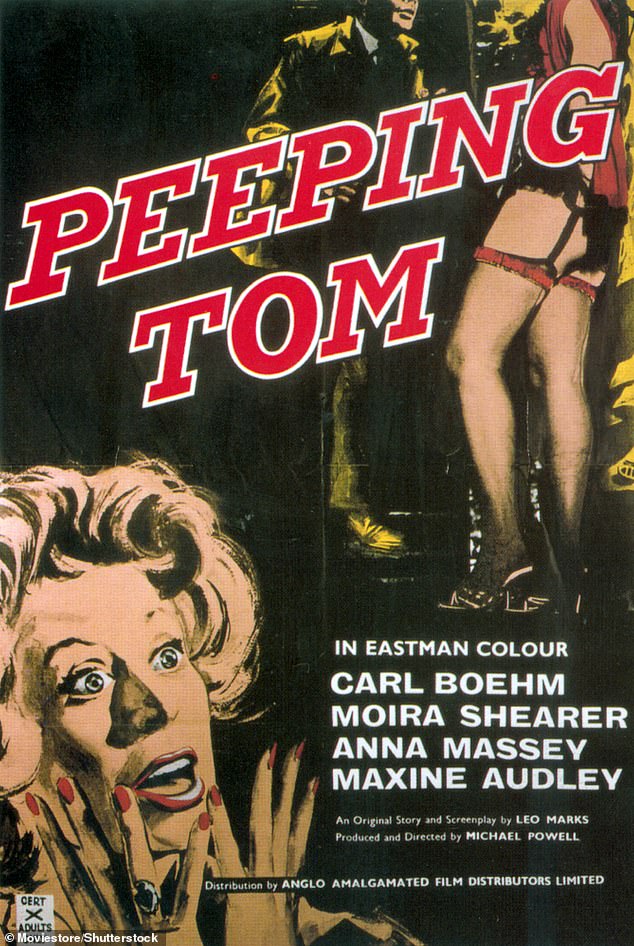
In the decades that followed its release, Peeping Tom’s qualities were re-evaluated and it is now widely regarded as a masterpiece
One was so outraged that he wrote: ‘Neither the hopeless leper colonies of East Pakistan, the back streets of Bombay, nor the gutters of Calcutta have left me with such feelings of nausea and depression as…’ . . Peeking Tom.”
Within days the film was withdrawn from cinemas and Powell, until then the respected author of classics such as The Life And Death Of Colonel Blimp (1943), A Matter Of Life And Death (1946), Black Narcissus (1947) and The Red Shoes (1948), was cast into outer darkness.
But in the decades that followed, Peeping Tom’s qualities were re-evaluated and it is now widely regarded as a masterpiece. The British Film Institute named it the 78th best British film of all time and in 2017 a Time Out magazine poll of 150 actors, directors, writers, producers and critics voted it the 27th best British film.
And now a meticulously restored version has been released on multiple formats, including DVD and Blu-ray.
So what explains this extraordinary reversal of fortune?
Much of the credit for Powell’s rehabilitation – 34 years after his death at age 84 in 1990 – can be attributed to a Hollywood director who watched The Red Shoes at the age of nine and never forgot the experience.
Martin Scorsese, no stranger to extreme violence in his own films such as Mean Streets and Taxi Driver, initially thought Powell was a pseudonym, but tracked him down in 1975 while he was living ‘beyond broke’ in a freezing cottage in Gloucestershire.
A man long accustomed to a 5pm whiskey was too poor to afford even his daily dram and had to chop his own firewood to provide a minimum level of heating.
When Scorsese came to Britain for the Edinburgh Film Festival to promote Taxi Driver, a mutual contact arranged to meet Powell at a restaurant in London.
“He was very quiet and didn’t really know what to think of me,” Scorsese later recalled. ‘I had to explain to him that his work was a great inspiration for a whole new generation of filmmakers: myself, Spielberg, Paul Schrader, (Francis Ford) Coppola, (Brian) De Palma.’
Powell subsequently became Scorsese’s advisor, encouraging him not to compromise on his vision of his mafia classic Goodfellas, with its extreme violence and drug use, no matter how many studios rejected it.
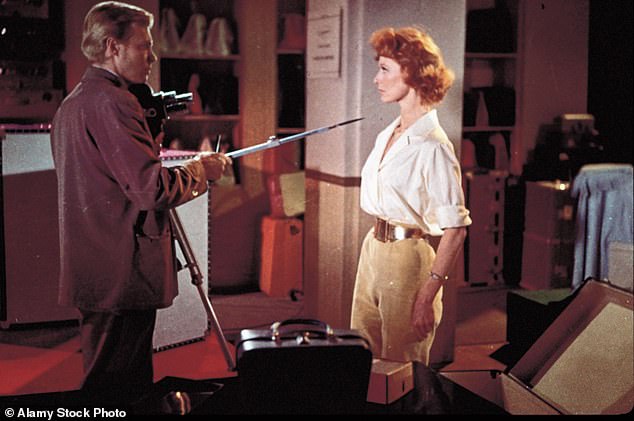
The British Film Institute named it the 78th greatest British film of all time
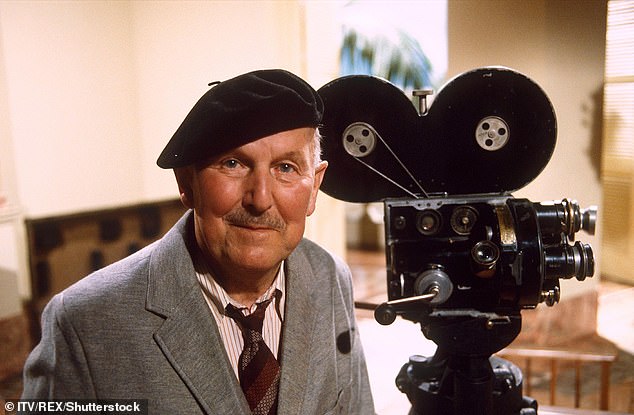
Powell was branded a sadist and pervert, and critics said his film should be “flushed quickly down the nearest sewer.”
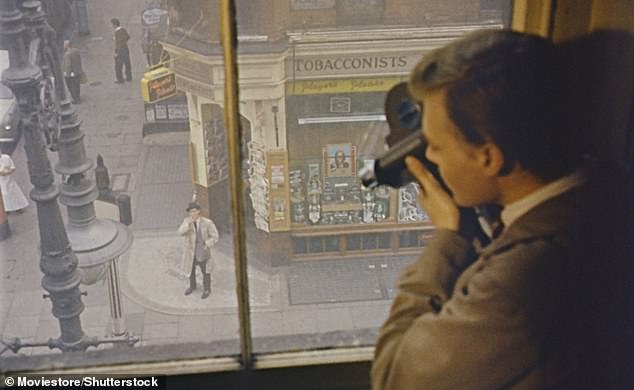
A film centering on a serial killer, who filmed the anguish of his victims in their final moments as he repeatedly stabbed them with a knife hidden in his camera tripod, was always going to challenge audiences.
Even after more than 60 years, Peeping Tom still has the ability to shock. The plot revolves around a fictional film technician named Mark Lewis, played by German actor Carl Boehm, who has a side business taking pornographic photographs.
He spends hours killing women while filming their contorted faces and dying sighs, using the footage to compose his own snuff films, long before the term was coined. But we are also drawn into his complex thinking, as Lewis reveals his distorted upbringing by a sadistic father.
After meeting his neighbor Helen, who lives in the ground floor flat with her blind mother, he shows her black-and-white home movies, filmed by his father, a psychologist, of young Lewis going through traumatic episodes as a child to continue his research. This included filming him at his mother’s deathbed as his father recorded his distress.
In fact, he was under constant surveillance because – in a chilling foreshadowing of the ubiquitous webcam – spy cameras were set up all over the family home.
At one point we see Lewis showing his snuff movie while Helen’s mother is in his apartment and she realizes how crazy he is. Helen then watches one of the films herself, but Lewis cannot bring himself to kill his future girlfriend to keep his secret.
Those looking for Freudian parallels between Powell and Lewis will be disappointed to learn that the director’s father was a hop farmer and not a psychologist.
Powell cast himself as Lewis’s father and his own son, Columba, played the young Lewis – as far as the parallels went.
One critic noted, “In Peeping Tom, (Powell’s) self-exposure goes even further. He not only plays the sadistic father, but uses his own child as a victim.’
Powell’s third wife Thelma Schoonmaker – Scorsese’s longtime cinematographer – has rejected this interpretation, arguing: ‘I don’t think Michael was thinking of that. . . he didn’t take it that seriously. He thought, ‘This is a good idea, Columba will be a good actor, and it will be fun to make together.’ I don’t think he expected the storm of response.”
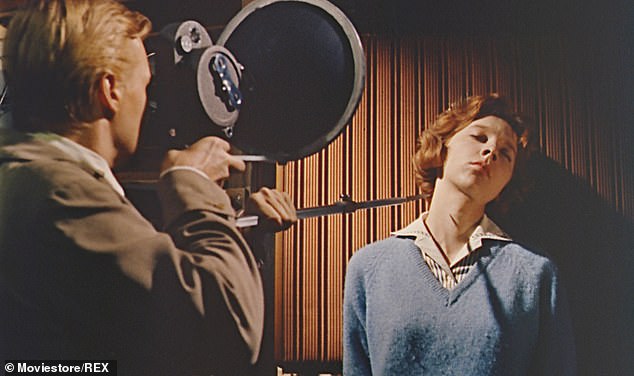
Even after more than 60 years, Peeping Tom still has the ability to shock
Columba Powell, now 72, says: ‘Everyone thinks I should be traumatized by it, but it was a movie and real life was different.’
But the casting wasn’t the only overlap between fiction and fact, as Michael Powell, the future director, was also an obsessive filmmaker at home. He ruthlessly mapped out family life with his second wife, Frankie, and two sons.
Unlike the introspective psychopath Lewis, however, Powell was no shrinking violet. After turning his back on a banking career, he pursued a career in the film industry with ruthless drive.
After taking on several backroom roles, he began working on Alfred Hitchcock’s early British films in the late 1920s.
In the 1930s Powell directed his own low-budget films, but his big break came in 1939 when he met the exiled Hungarian screenwriter and producer Emeric Pressburger.
In 1943, the pair made The Life And Death Of Colonel Blimp, starring Deborah Kerr, and five years later he and Pressburger earned a best picture Oscar nomination for The Red Shoes.
However, the two men drifted apart professionally in the mid-1950s, and more than one critic has speculated that the lack of Pressburger’s insight explains Powell’s decision to make Peeping Tom.
Powell struggled to raise the film’s paltry £125,000 budget, but bizarrely Carry On financier Nat Cohen stepped in, likely attracted by the film’s apparently raunchy material. He would live to regret the day he did that.
Cohen and Powell were not the only ones to suffer from the backlash. Carl Boehm never made another English-language film.
Anna Massey – who played Helen – on the other hand, had an impressive career. But if Powell was bitter, it didn’t show.
Whatever the mistakes, Powell’s Peeping Tom painted a picture of what was to come.
With its flashy Technicolor and film-within-a-film premise, Peeping Tom signaled the end of the buttoned-down post-war studio system and its strict moral code.
Ultimately, the irony of its rehabilitation as a cinema classic was not lost on Powell, who wrote in his autobiography, “I make a movie that no one wants to see and then, thirty years later, everyone has seen it or wants to see it.” seeing it.’
